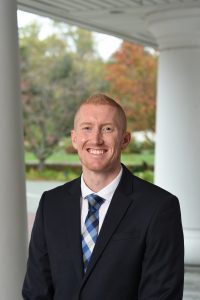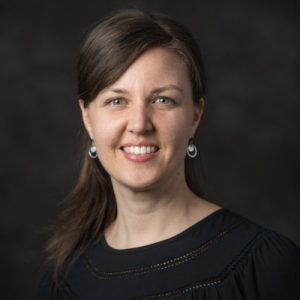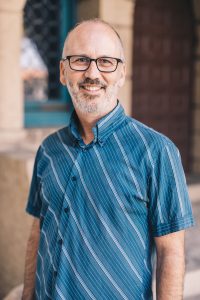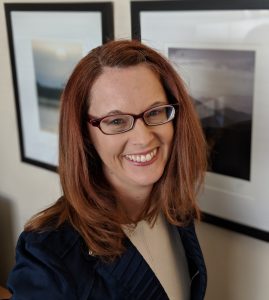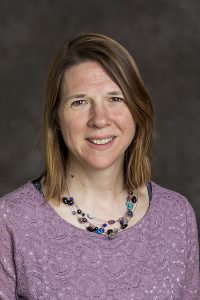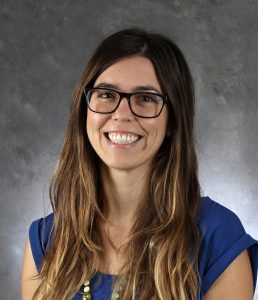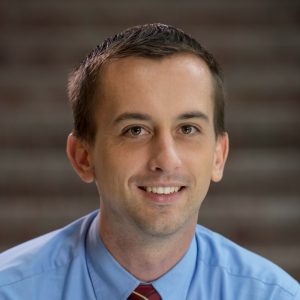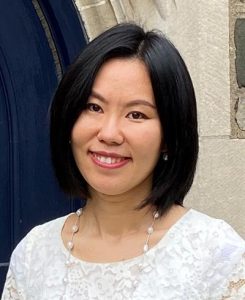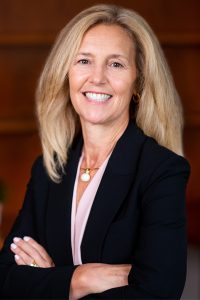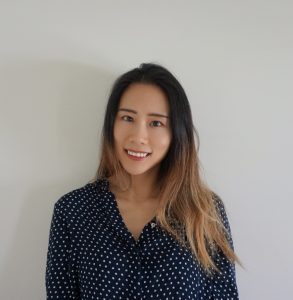Speakers
March 10th, 2023 (Friday)
Description: The goal of this workshop is to offer participants practical techniques for effective data visualization to enhance scientific communication. Attendees will learn the key principles of data visualization through comprehensive steps in publishing preparation highlighting the importance of effective data visualization in science communication. The presenter will lead you through the data visualization process, including data preparation, selecting the most appropriate graphics for different data types and research questions, managing code in R, and publishing figures and codes on commonly used platforms. By the end of the workshop, attendees will have gained practical knowledge and skills for effective data visualization in scientific communication and be equipped with actionable steps for implementing these strategies in their future research.
Speaker: Bingjie Zhou (Tufts)
Bingjie Zhou is a Ph.D. candidate at Tufts University's Friedman School of Nutrition Science and Policy, majoring in Nutrition Epidemiology and Data Science. She worked as a data analyst at Friedman school for two years before joining the Ph.D.program, where she played a key role in leading a collaborative project with Nestle, resulting in the creation of the Global Nutrition and Health Atlas (GNHA) - a data platform aimed at improving health outcomes globally. Bingjie is well-versed in using advanced data visualization tools such as R Shiny and Tableau, and has contributed to numerous data-intensive projects like detecting individual weight trajectory patterns and better communicating with flu and foodborne diseases. Her current research focuses on applying visual analytics to understand the impact of nutrition and health at the global, national, and individual levels.
Moderator: Kristin Leonberg
I am a PhD student in the Nutrition Epidemiology and Data Science program at the Tufts University Friedman School of Nutrition Science and Policy. I am also a Registered Dietitian with the Commission on Dietetic Registration where my clinical practice has centered around those with chronic kidney disease and rare genetic kidney diseases. My research interests include dietary patterns and chronic kidney disease.
I am a PhD student in the Nutrition Epidemiology and Data Science program at the Tufts University Friedman School of Nutrition Science and Policy. I am also a Registered Dietitian with the Commission on Dietetic Registration where my clinical practice has centered around those with chronic kidney disease and rare genetic kidney diseases. My research interests include dietary patterns and chronic kidney disease.
Description: In this panel, we will discuss how the marketing and promotion of foods and drinks shapes dietary preferences and choices. We will discuss the power of paid and user-generated promotional content within social media, including the role of influencers in promoting food and drink choices. We will also discuss how Industry can and cannot respond to changing customer preferences.
Speakers: Jennifer Emond (Dartmouth), Travis Masterson (Penn State), Rachel Cheatham (Tufts), & Frances Fleming-Milici (UConn)
Dr. Travis Masterson is currently the Broadhurst Career Development Professor for the Study of Health Promotion and Disease Prevention at The Pennsylvania State University. He is the director of the Health, Ingestive Behavior, and Technology Laboratory and his laboratory focuses on understanding how technology and media influence eating behaviors and health outcomes.
Dr. Rachel Cheatham is Founder & CEO of Foodscape Group, LLC, a nutrition strategy consultancy based in Chicago, IL, USA. Serving as a navigation partner, Rachel helps companies and brands successfully conceptualize and position healthier foods and beverages in the global marketplace. Rachel holds a doctorate in nutritional biochemistry from Tufts University, where she is an Adjunct Assistant Professor of Food Marketing. She has been a commercial television producer, Director at the International Food Information Council, and Senior Vice President at the global public relations firm Weber Shandwick. She is a Professional Member of the Institute of Food Technologists and a member of both the American Society of Nutrition and Academy of Nutrition and Dietetics.
Frances Fleming-Milici, PhD is Director of Marketing Initiatives at the Rudd Center for Food Policy and Health, University of Connecticut. For over 10 years Dr. Fleming’s work has been focused on analyzing the amount, type, and nutrition of foods and beverages marketed to children, adolescents, and parents of young children; examining race/ethnicity differences in rates of exposure; and measuring the effects of food marketing exposure. Her current research focuses on assessing child-directed food marketing on social media and improving the foods and beverages parents feed their children through parent-targeted interventions and policy change.
Moderator and Speaker: Jennifer Emond
My research examines exposure to child-directed food marketing and the use of digital media in the context of child health and well-being.
Description: A key part of pursuing sustainability goals in food systems is communicating the sustainability properties of marketplace options to all stakeholders. A key tool for this is the use of labels. Our panel will discuss the evolving trends in environmental and social sustainability practices in the food industry, how companies are communicating these attributes to consumers and how these developments interact with the interests of investors, governments, and industry.
Speakers: Sean Cash, Kathy Fuller, & Shijun Gao (Tufts)
Dr. Cash is an economist who conducts research both internationally and domestically on food, nutrition, agriculture and the environment. He is interested in the environmental impacts in food and beverage production, including projects on crop quality and climate change, consumer interest in production attributes of tea and coffee, and invasive species management. He also focuses on how food, nutrition, and environmental policies affect food consumption and choice, with specific interest in children's nutrition and consumer interest in environmental and nutritional attributes of food. He teaches courses in statistics, agricultural and environmental economics, and consumer behavior around food. His research has been funded by the United States Department of Agriculture, the National Science Foundation, NIH, Agriculture and Agri-food Canada, and Newman's Own Foundation, among other agencies. He is currently Chief Editor of the Food Policy and Economics Section of Frontiers in Nutrition and on the editorial board of Agribusiness, and has served as the Chair of the Food Safety and Nutrition Section of the Agricultural and Applied Economics Association.
Dr. Katherine Fuller is a Postdoctoral Scholar at the Friedman School of Nutrition Science and Policy at Tufts University. Her research analyzes consumers’ acceptance and willingness to pay for food labels and novel food products. Her research interests focus on the efficacy of food labels and their impact on farmers’ livelihoods, consumer interest in cellular agriculture, and food labeling for ethical and environmental purposes. She also analyzes sociodemographic factors that influence consumers’ decisions to purchase sustainable products. Dr. Fuller earned her PhD in Agribusiness at Arizona State University and an MS in Agricultural Economics at Louisiana State University. While pursuing her doctorate, she obtained a certificate in Environmental and Sustainability Economics from the School of Sustainability at ASU.
Dr. Shijun Gao is a Post-Doctoral Researcher at the Friedman School of Nutrition Science and Policy at Tufts University. Dr. Gao’s research interests include social network analysis, and consumer food choice, especially the impact of food labeling. At Tufts University, he works with two inter-related teams, one is supported by the United States Department of Agriculture on the use of cellular agriculture (Cellular Ag Project), and another transdisciplinary effort focused on addressing major gaps in sustainable diets research and policy (Lasting Project). Prior to joining Tufts University, Dr. Gao earned his Ph.D. in Agribusiness from the W.P. Carey School of Business at Arizona State University. In addition, he got his master’s degree in economics from Vanderbilt University and a bachelor’s degree in management from China Agricultural University.
Moderator: Kelly Cara
Kelly Copeland Cara is a doctoral candidate in Nutrition Epidemiology and Data Science at Tufts University’s Friedman School of Nutrition Science and Policy in Boston, MA. Previously, she served in Bangladesh as a U.S. Peace Corps Volunteer, earned a master's in experimental psychology from Missouri State University (MSU), and received culinary training in health-supportive dietary patterns from the Natural Epicurean Academy of Culinary Arts in Austin, Texas. Through service, research, and culinary work, Cara desires to empower people to improve their health and well-being through modifiable lifestyle behavior changes rooted in empirical evidence. To achieve this, her early research focused on motivation through the lens of Self-Determination Theory and the practice of mindfulness. This work led to an Assessment Research Coordinator position at MSU where she conducted research related to subtle changes in teaching and administrative practices to foster student engagement, improve learning outcomes, and increase student retention. Applying this approach to health topics, Cara’s current research aim is to further the evidence surrounding plant-based dietary patterns by investigating their effects on health and disease outcomes and to uncover practical and simple dietary and food preparation choices people can make to foster improved and sustained health across the lifespan.
Selected Students:
- Or Avishai (HUJI): Health in the eyes of the beholder-- A pilot study of consumer response to front-of-package food labeling in Israel
- Ee Yin Kok (UCSI): Association of psychosocial wellbeing, sleep quality, and sunlight exposure with gestational weight gain status among pregnant women in Kuala Lumpur
- Chih-Fu Wei (Harvard): Proportion of Obesity in a Community-based Behavior and Attitude (COMBAT) survey in Tuval-- a nationwide, cross-sectional study in 2020 and 2022
- Po-Jen Lin (NTU): Association between home garden use and obesity outcome: A nationwide survey in Tuvalu
- Barbara Onyeonu (Okpara): Food habits, dietary practices and anthropometric status of adolescent pregnant women in Umuahia North Local Government Area of Abia State
Moderator: Tasija Karosas
Tasija is a MS candidate at Friedman School of Nutrition Science and Policy pursuing her Masters in Biochemical and Molecular nutrition. Her current research is looking at the relationship between choline and Alzheimer's Disease. As well pursuing her master’s in nutrition, she also is a MPH candidate at Tufts school of Medicine.
Description: Fish are good for you - many national dietary guidelines recommend that we eat fish several times a week. An excellent source of protein and essential micronutrients, fish are especially vital for some of the world’s poorest people whose diets may be largely grain or tuber based, and otherwise lacking in diversity. Additionally, for communities living in coastal areas, fishing is an essential source of income and livelihoods.
At the same time our marine ecosystems are in a parlous state, with two thirds of global fish stocks either fully or over exploited. Aquaculture – a growing contributor to global fish production and consumption - holds potential to offer solutions, but also brings with it a host of its own challenges.
So what do we do? In the context of growing global demand for fish, and a changing climate which will affect life in the oceans, as on land, should fish still be on the menu? And if so, which fish, and which priority populations?
Join this session for a panel discussion featuring three speakers with decades of experience of grappling with this complex topic.
Speakers: Jess Sparks (Tufts), Shakuntula Thilsted (WorldFish), & Benjamin Halpern (UC - Santa Barbara)
Jess’s research uses qualitative and quantitative social science methods to conceptualize and quantify the effects of climate and environmental change on working conditions in seafood supply chains, ranging from decent work to forced labor, human trafficking, and modern slavery. Her research is applied in nature, aiming to provide an evidence-base to end exploitative labor practices. Her research has informed the practices of front-line agencies (including the Vatican’s pastoral responses to human trafficking), governments, policy makers, and supply chain actors. She has collaborated with a range of stakeholders including unions, port-based chaplains, and fishers themselves. She has recently joined forces with the International Transport Workers’ Federation and the Fair Food Program to launch the first worker-driven social responsibility pilot in fisheries. Her recent research on working conditions in UK fishing was featured in The Guardian, and her current research projects involve a global analysis of working conditions in fishing using a dataset she constructed from more than 3,000 surveys with fishers and the development of a living wage framework for migrant fishers in globalized seafood value chains. Jess has worked in the labor and human rights fields for over 15 years, first as a social worker and now as a researcher.
Shakuntala Haraksingh Thilsted is the Director for Nutrition, Health and Food Security Impact Area Platform, CGIAR. She was previously the Global Lead for Nutrition and Public Health at WorldFish. She was awarded the 2021 World Food Prize for her ground-breaking research, critical insights, and landmark innovations in developing holistic, nutrition-sensitive approaches to aquatic food systems. She was awarded the 2021 Arrell Global Food Innovation Award for research innovation. She is a member of the Steering Committee of the High Level Panel of Experts on Food Security and Nutrition (HLPE) of the United Nations Committee on World Food Security (CFS), and member of the Scientific Advisory Committee of the UN Food Systems Coordination Hub. She was Vice Chair of the UN Food Systems Summit 2021: Action Track 4 - Advance Equitable Livelihoods, and also a Food Systems Champion. In 2022, Shakuntala was appointed co-chair of the EAT-Lancet 2.0 Commission. Shakuntala holds a PhD from the Royal Veterinary and Agricultural University, Denmark. She holds Honorary Doctorates from the Swedish University of Agricultural Sciences and The University of the West Indies.
Dr. Ben Halpern is the Director of the National Center for Ecological Analysis and Synthesis (NCEAS) and Professor in the Bren School of Environmental Science and Management at UC Santa Barbara. He received his Ph.D. in marine ecology in 2003 from UC Santa Barbara and then held a joint post-doctoral fellowship at NCEAS and the Smith Fellowship Program. He was a Research Associate at NCEAS for the decade following that until joining the faculty at the Bren School. In the past 20 years Dr. Halpern has published over 280 peer-reviewed articles and was named one of the World’s Most Influential Scientific Minds by Thompson-Reuters. In 2016 he was awarded the A.G Huntsman Award for Excellence in Marine Science by the Royal Society of Canada, in 2017 the Peter Benchley Ocean Award for Excellence in Science and a Fellow of the California Academy of Sciences, in 2018 the Ocean Award in Science, and in 2020 elected a Fellow of the Ecological Society of America.
Moderator: Tara Garnett (TABLE)
Tara is a researcher at the University of Oxford, and the Director of TABLE, a global platform for thinking and dialogue on key debates about the future of food. TABLE seeks to facilitate informed discussions about how the food system can become sustainable, resilient, just, and ultimately “good”. Tara’s work centres on the interactions among food, climate, health and broader sustainability issues; she has a particular interest in livestock as a sector where many of these converge. She is also interested in how knowledge is communicated to and interpreted by policy makers, civil society organisations and industry, and in the values that these different stakeholders bring to food problems and possible solutions. TABLE is a collaboration between the University of Oxford (where Tara is based), the Swedish University of Agricultural Sciences and Wageningen University and Research.
Description: There are barriers that can make shifting to and sustaining healthy, plant-forward diets (such as plant-based, vegetarian, or Mediterranean diets) challenging. The goal of this presentation will be to provide an overview of the behavioral strategies used to facilitate adoption of plant-forward diets in three different community-based interventions.
Speaker: Brie Turner-McGrievy (USC, Arnold School)
Dr. Brie Turner-McGrievy she is an associate professor at the University of South Carolina in the Department of Health Promotion, Education, and Behavior and Deputy Director for the TecHealth Center in the Arnold School of Public Health.
Moderator: Sara Folta
Sara C. Folta, PhD is an Associate Professor, Associate Dean for Diversity and Inclusion, and Interim Dean for Faculty Affairs at the Friedman School of Nutrition Science and Policy at Tufts University. Her research interests focus on community-based strategies for improving dietary intake, physical activity, and body composition. She has particular expertise in behavioral psychology, communications, and qualitative methods. A major line of her research involves community-based interventions to improve heart health among women, with a focus on Black women. Dr. Folta received a B.A. in biology from Middlebury College, an M.S. in cell and molecular biology from the University of Vermont, and a Ph.D. in nutrition from Tufts University.
Speaker: Merri Metcalf (WSU Breadlab)
Merri Metcalfe is a doctoral candidate at WSU Breadlab working under the mentorship of Dr. Stephen Jones. Her research focuses on the accessibility, quality, and affordability of grain-based products from western Washington and on breeding for increased fiber content in wheat along with subsequent health and food system benefits of doing so. She completed a Master of Sciences in Sport Nutrition at the University of Colorado Colorado Springs (UCCS) in 2018. Prior to pursuing doctoral studies ,Merri worked as a registered dietitian specializing in eating disorder treatment and sport nutrition, but most recently has been moved by the need to cultivate a more positive and resilient food system.
Moderator: Kelly Cara
Kelly Copeland Cara is a doctoral candidate in Nutrition Epidemiology and Data Science at Tufts University’s Friedman School of Nutrition Science and Policy in Boston, MA. Previously, she served in Bangladesh as a U.S. Peace Corps Volunteer, earned a master's in experimental psychology from Missouri State University (MSU), and received culinary training in health-supportive dietary patterns from the Natural Epicurean Academy of Culinary Arts in Austin, Texas. Through service, research, and culinary work, Cara desires to empower people to improve their health and well-being through modifiable lifestyle behavior changes rooted in empirical evidence. To achieve this, her early research focused on motivation through the lens of Self-Determination Theory and the practice of mindfulness. This work led to an Assessment Research Coordinator position at MSU where she conducted research related to subtle changes in teaching and administrative practices to foster student engagement, improve learning outcomes, and increase student retention. Applying this approach to health topics, Cara’s current research aim is to further the evidence surrounding plant-based dietary patterns by investigating their effects on health and disease outcomes and to uncover practical and simple dietary and food preparation choices people can make to foster improved and sustained health across the lifespan.
Description: This workshop will start with a broad overview of qualitative research methods, including various theoretical approaches, the ethical review process, developing data collection tools, piloting the survey instruments, collecting data, and data processing and cleaning. The next phase of the workshop will include two live demonstrations of qualitative data analysis, the first one using NVivo and the second one using the Research AI software. This will be followed by breakout sessions during which participants will divide into small groups and work through a series of discussion questions to get them thinking about how to design and implement effective qualitative studies. We will conclude by regrouping, discussing lessons learned, and answering any questions or comments.
Speakers: Alex Carroll, Isabella Young & Leah Beaulac (Environmental Defense Fund)
David A. Carroll is a PhD candidate in Agriculture, Food, and Environment at the Friedman School of Nutrition Science and Policy at Tufts University. He is also a field researcher on the ViMPlus post-program sustainability study, which involves investigating sustainability of the ViM program implemented in Center North Region of Burkina Faso by ACDI/VOCA with funding from USAID. He was a Fulbright student follow in Burkina Faso for the 2021-2022 academic year, during which he partnered with the Burkina Faso National Institute of the Environment and Agricultural Research (INERA) on research investigating locally-driven natural resource management and agricultural production systems. David plans to pursue a career in the agricultural and sustainable rural development sphere, with a focus on policy-oriented research or program design and evaluation. In his free time, he enjoys hiking and other outdoor sports, volunteering, language learning, and travel. He is currently volunteers as the board of directors president for the CASB Support Group, a nonprofit organization working with the Centre d'Agriculture Saint Barnabas (CASB) agricultural college in Northeast Haiti, and as a project assistant with Immigrant Family Services Institute (IFSI-USA), an immigrant advocacy and services organization located in Boston, Massachusetts.
Isabella Young is a first-year Master's candidate in the Food and Nutrition Policy and Programs division at the Friedman School of Nutrition and Science Policy. Previously, she served on the performance nutrition staff at Texas A&M for four years, was a City Health Promoter at International Rescue Committee, and currently serves as an International Development Intern at the Network of Engaged International Donors in Boston, Massachusetts. Her academic focus at Tufts centers around zero hunger and humanitarian aid delivery in emergencies. After Tufts, Isabella will pursue her passion for nutrition, focusing on mothers and children in emerging countries.
Leah Beaulac is a Program Manager on the Climate Resilient Food and Water Systems teams at the Environmental Defense Fund. In August 2022, Leah completed her Master of Science in Sustainable Water Management with a focus on Water, Food and Energy at the Tufts Friedman School. While at Tufts, Leah was a National Science Foundation Fellow, researching the impact of climate change and sea level rise on agricultural livelihoods and migration in Indonesia, and an Innovation Fellow on the Seeding the Future Initiative. Leah also spent time as a researcher on the Tufts USAID/IDEAL PAST-Forward study. Before Tufts, Leah worked for over five years in the humanitarian sector, most recently for the United Nations World Food Program in Bangladesh and IMPACT Initiatives, a Think and Do Tank, in the Middle East. Her work has primarily focused on tackling issues of water and drought, climate-resilient agriculture, and humanitarian challenges. She is passionate about connecting climate solutions to sustainable livelihoods, water management, and food systems. She is also a classically trained pianist and keen to connect on how the arts can play a bigger role in climate responses.
Description: This seminar will highlight the effects of different diets on gut microbiome function and the mechanisms by which these diet-microbial interactions contribute to health maintenance or disease development across species.
Speakers: Naisi Zhao (Tufts) & Jennifer Lee (HNRCA)
My research uses OMICs data to identify and validate data-driven biomarkers that can be modulated for chronic disease intervention and used for chronic disease risk stratification. My secondary research objective is to develop novel Knowledge Translation strategies for translating OMICs knowledge and biomarkers into public health programs and disease prevention interventions at the population level.
Dr. Lee is trained as a basic scientist and is a Scientist II at the Human Nutrition Research Center on Aging at Tufts University. She completed her PhD at UC Davis in Nutritional Biology followed by post-doctoral research fellowships at the University of Toronto and Beth Israel Deaconess Medical Center/Harvard Medical School. One of the primary research areas of focus in her research laboratory is to understand how diet and nutrition can be leveraged to improve gut microbiome function, gut health, and host metabolism in cell-based and rodent models of dietary obesity and aging.
Moderator: Mengxi Du
Mengxi is a PhD candidate enrolled in the Nutritional Epidemiology and Data Science program at the Friedman School of Nutrition Science and Policy. Mengxi is passionate about investigating nutrition as a modifiable factor for promoting healthy eating and the wellbeing of cancer survivors and the general population. She actively participated in research that evaluated nutritional needs and barriers experienced by adult cancer survivors, the feasibility of nutrition intervention in pediatric cancer patients, and dietary intake or diet quality in association with cancer survival outcomes. Her current research focused on studying the impact of food intake, nutrition policies, and nutrition interventions on cancer and cardiometabolic diseases in the US. Prior to her doctoral training, Mengxi graduated from Tufts with a Master of Nutrition Science in Biochemical and Molecular Nutrition and a Master of Public Health specializing in Epidemiology and Biostatistics. After graduation, she received clinically focused dietetic training at Brigham and Women’s Hospital and became a Registered Dietitian in 2018.
Speaker: Chris Economos (Tufts)
Christina Economos, PhD is the Dean ad interim at the Friedman School, the New Balance Chair in Childhood Nutrition, and a Professor of Public Health and Community Medicine at Tufts University School of Medicine. At the Friedman School, she co-founded and served as Director of ChildObesity180, a nationally renowned research initiative focused on evidence-based interventions, multi-sector partnerships, and stakeholder networks to address the complex drivers of child health and promote equity. She has served as the Dean for Research Strategy and as Chair of the Nutrition Interventions, Communications, and Behavior Change Division at Friedman.
Dr. Economos currently serves as the principal investigator on multiple large-scale, community-based interventions that examine childhood nutrition and physical activity with the goal of improving the health of all of America's children. Her bio-behavioral research studies are interdisciplinary and include theory-based obesity prevention interventions, cutting edge systems science, and partnerships with diverse populations in urban and rural communities in schools, out-of-school environments, childcare centers, and restaurants. She has authored more than 200 scientific publications.
She has co-created and co-directed a university-wide institute to address global obesity as part of Tufts University’s research and scholarship strategic plan. The Tufts Institute for Global Obesity Research (TIGOR) is a community of over 50 faculty across 8 schools. She also serves as Vice Chair of the Roundtable on Obesity Solutions (ROOS) at the National Academies of Science, Engineering, and Medicine in Washington DC, a multisector group tackling obesity.
A dedicated scientist, she is equally committed to teaching and mentoring both students and junior faculty members at the School. At Friedman, she has advised over 100 master’s students, supervised internships and directed studies, and served on multiple thesis committees. As Chair of the Nutrition Interventions, Communications, and Behavior Change Division, she grew it into one of the largest in the School through a focus on recruitment, research expansion, faculty development, diversity, equity, inclusion, and curriculum design.
Dr. Economos received a Bachelor of Science from Boston University, a Master of Science in Applied Physiology and Nutrition from Columbia University and a Doctorate in Nutritional Biochemistry from Tufts University
Read more about Dr. Economos’ active studies within ChildObesity180 and Catalyzing Communities
Replicating the Healthy Ways program with the Harlem Children’s Zone® (HCZ)
Evaluating Children’s Physical Activity in School-Based Programs
Creating the You're The Mom project in Boston, Massachusetts and Atlanta, Georgia. YTM was a social media campaign that empowers moms to take small steps to make healthy eating fun and easy for their kids
Developing community telehealth interventions in the THIS-WIC project with Assistant Professor and Project Director Erin Hennessy, PhD
Read the Chicago Council on Global Affairs Report on Catalyzing Whole-of-Community Childhood Obesity Prevention Efforts, co-authored with Erin Hennessy and Ariella R. Korn
Education
Ph.D., 1996, Nutritional Biochemistry, The Friedman School, Tufts University
M.S., 1990, Applied Physiology and Nutrition, Teachers College, Columbia University
B.S., 1987, Cardiopulmonary Science, Boston University
Moderator: Sarah Stockwell
At the Block Career Center, Sarah partners with students to help them leverage their talents to make a tangible impact on the world. Via skill-building workshops and one-on-one coaching, Sarah helps drive career dreams and aspirations into reality. Prior to Friedman, Sarah worked at The Fletcher School and The Gordon Institute, also at Tufts, building career development programming to help graduate students improve self-awareness, investigate compelling career opportunities, and obtain the essential skills to conduct successful career searches. Sarah also managed the Tufts Alumni council and built engaging alumni programming for Tufts alumni worldwide. Prior to Tufts, Sarah helped establish the European headquarters of a high-tech company in Amsterdam, The Netherlands by attracting the best talent to grow the team. Sarah is a double jumbo with a B.A. in American Studies and an M.A. in Museum Education from Tufts University.
Speaker: Kyle Monahan
Kyle Monahan enjoys using data science, remote sensing, and spatial statistics to analyze big, messy data and complex environmental and social systems, and teach these techniques to all. Kyle has a background in environmental science and engineering, with a specific focus on geochemical techniques applied to water. His previous work includes developing sediment contaminant chronologies for the Hudson River at Rensselaer Polytechnic Institute (Troy, NY), and work in developing low-cost filters with arsenic adsorbents at Clarkson University (Potsdam, NY). His most recent graduate work at Tufts University used agent-based models to investigate the role of social and behavioral factors on the feasibility of point-of-use water technologies. He co-taught various courses at Harvard Extension since 2014. In 2016, he worked as a GIS Analyst and later a Statistics Specialist for Tufts, providing individualized consultations and statistical services to students and faculty. He is a trained Software Carpentry instructor and a founding member of NESCLiC, and cares deeply about making statistics and data science methods understandable and accessible to all. He currently works with several local community groups, most recently with the Center for Health and Environmental Justice. He is currently Manager, Data Science Services at Tufts University, providing statistical consulting, data visualization, and high-performance computing (HPC) support.
Moderator: Yutong Chen
Yutong Chen is a first-year PhD student at Tufts University Friedman School of Nutrition Science and Policy, concentrating in Nutrition Epidemiology and Data Science. Her research topic focuses on dietary patterns and inadequate nutrition consumption on a global scale. She graduated from Tufts with a dual master's degree in Nutrition (concentration in Nutrition Intervention, Communication, and Behavior Change) and Public Health (Epidemiology and
Biostatistics). She joined the Global Nutrition and Health Altas (GNHA) and has worked as a data analyst since 2021 summer of 2021. She is also dedicated to working on COVID-19 booster-related topics with a few Tufts Public Health department faculty members.
Selected Students:
- Elissa Price (UOW): Why foods high in whole grain should not be considered ‘ultra-processed’ - an analysis of population data and chronic disease risk measures
- Pei Zhou (PSU): Promoting Healthy Diets Through Food Reformulation-- The Demand for “Better for You” Beverages
- Okon Esther (Okpara): External and Personal Food Environments in a Nigerian Tertiary Institution-- Implications on Food Consumption Pattern and Weight Status.
- Oscar Sarasty (TTU): Effects of non-income variables in the consumption of fresh fruits and vegetables in the United States population
- Janice Ee Fang Tay (UCSI): Fast-Food And Street Food Exposure Associated With Diet Quality Of Urban Poor Adolescents In Kuala Lumpur, Malaysia
- Gideon Iheme (Okpara): Compliance of pre-packaged food products with the Nigerian national food and nutritional labelling regulations
Moderator: Jackie Singer
Jackie Singer is a second year Agriculture, Food, and Environment master's student at the Friedman School. She is passionate about sustainability at the intersection of climate science and the food system.
Selected Students:
- Tasija Karosas (Tufts): The Association Between Choline Intake and Alzheimer’s Dementia Risk-- The Rush Memory and Aging Project
- Faezeh Abaj (Tehran): Dietary total antioxidant capacity can modify the effects of Apo-B polymorphisms (Ins/Del and EcoRI) on atherogenic indices between diabetic patients
- Odessa Seng (UW-Seattle): The role of mitochondrial function in diet-induced weight loss
- Zeinab Houshialsadat (Dublin): Ultra-processed Foods, Dietary Diversity and Micronutrient Intakes in the Australian Population
- Wiksa Virijo Vicheet (MSU-Malaysia): The Interaction Effects Of Food Security And Diet Quality On Weight Changes Among Working Women Of Reproductive Age During The Endemic Phase Of Covid
- Laura Lara Castor (Tufts): Global, regional, and national consumption of sugar-sweetened beverages in children and adolescents between 1990 and 2018-- New findings from the Global Dietary Database
- Qisi Yao (URI): Replacing Ultra-processed Foods with Minimally Processed Foods Enhances 6-Month Weight Loss Among Participants from the POUNDS Lost Trial
- Yutong Chen (Tufts): Comparison of dietary intakes in the Global Burden of Disease and Global Dietary Databases: a case of sodium consumption
- Belen Beltramo (Maastricht): Nutrient composition of fresh produce – assessing variability between European countries for substantiating nutrition and health claims
- Yongyi Pan (Tufts): Association of Egg Consumption with Alzheimer’s Dementia Risk - The Rush Memory and Aging Project
Speaker: Yi Zhao
Yi is a doctoral candidate in Nutrition Epidemiology and Data Science at Tufts University and a Data Science Specialist at Tufts Technology Service (TTS). Her Ph.D. work aims to study the effect of omega-3 fatty acids on the risk of Alzheimer's disease. Her methods focus on causal inference approaches, including Mendelian randomization, target trial emulation, and causal mediation analysis.
Description: In this keynote, Erin Coughlan de Perez will explore the ways in which climate change is impacting food production, food security, and nutrition around the world, especially during extreme weather events, such as droughts. We can no longer use past weather as an indication of what current risks are, and people around the world are starting to adapt to this changing climate. Highlighting solutions from agriculture to health, Erin will discuss solutions to help us manage in a changing climate.
Speaker: Erin Coughlan de Perez (Tufts)
Erin comes to the Feinstein Center from the Red Cross Red Crescent Climate Centre, where she built a global climate science team and led the first Forecast-based Financing pilots in the Red Cross Red Crescent Movement. Erin retains a technical advisor position at the Climate Centre, to maintain links to humanitarian operations around the world.
Erin is also a Lead Author of the Intergovernmental Panel on Climate Change (IPCC) 6th Assessment Report. Her chapter is Decision-Making Options for Managing Risk, as part of the Working Group II on Impacts, Adaptation, and Vulnerability.
Moderator: Elena N Naumova (Tufts)
Dr. Naumova is a Professor and Chair of the Nutrition and Epidemiology Division of the Gerald J. and Dorothy R. Friedman School of Nutrition Science and Policy at Tufts University. Her research activities span a broad range of research programs in emerging and re-emerging diseases, environmental epidemiology, molecular biology, nutrition, and growth. Her primary expertise is in the development of analytical tools for spatiotemporal and longitudinal data applied to nutrition data dashboards, disease surveillance, exposure assessment, and studies of growth. She is training graduate students in creating and using data analysis workflow and novel statistical tools to examine the impacts of extreme weather events and policy interventions on health conditions in spatial and temporal domains. She pioneered methods and models for assessing disease seasonality and now focusing on understanding drivers for seasonal malnutrition and famines.
Speaker: Elena N Naumova (Tufts)
Dr. Naumova is a Professor and Chair of the Nutrition and Epidemiology Division of the Gerald J. and Dorothy R. Friedman School of Nutrition Science and Policy at Tufts University. Her research activities span a broad range of research programs in emerging and re-emerging diseases, environmental epidemiology, molecular biology, nutrition, and growth. Her primary expertise is in the development of analytical tools for spatiotemporal and longitudinal data applied to nutrition data dashboards, disease surveillance, exposure assessment, and studies of growth. She is training graduate students in creating and using data analysis workflow and novel statistical tools to examine the impacts of extreme weather events and policy interventions on health conditions in spatial and temporal domains. She pioneered methods and models for assessing disease seasonality and now focusing on understanding drivers for seasonal malnutrition and famines.
–
For general inquiries on the symposium program and/or registration, to provide feedback to the Student Planning Committee, or for those seeking collaboration, please contact us at tnds@tufts.edu!



